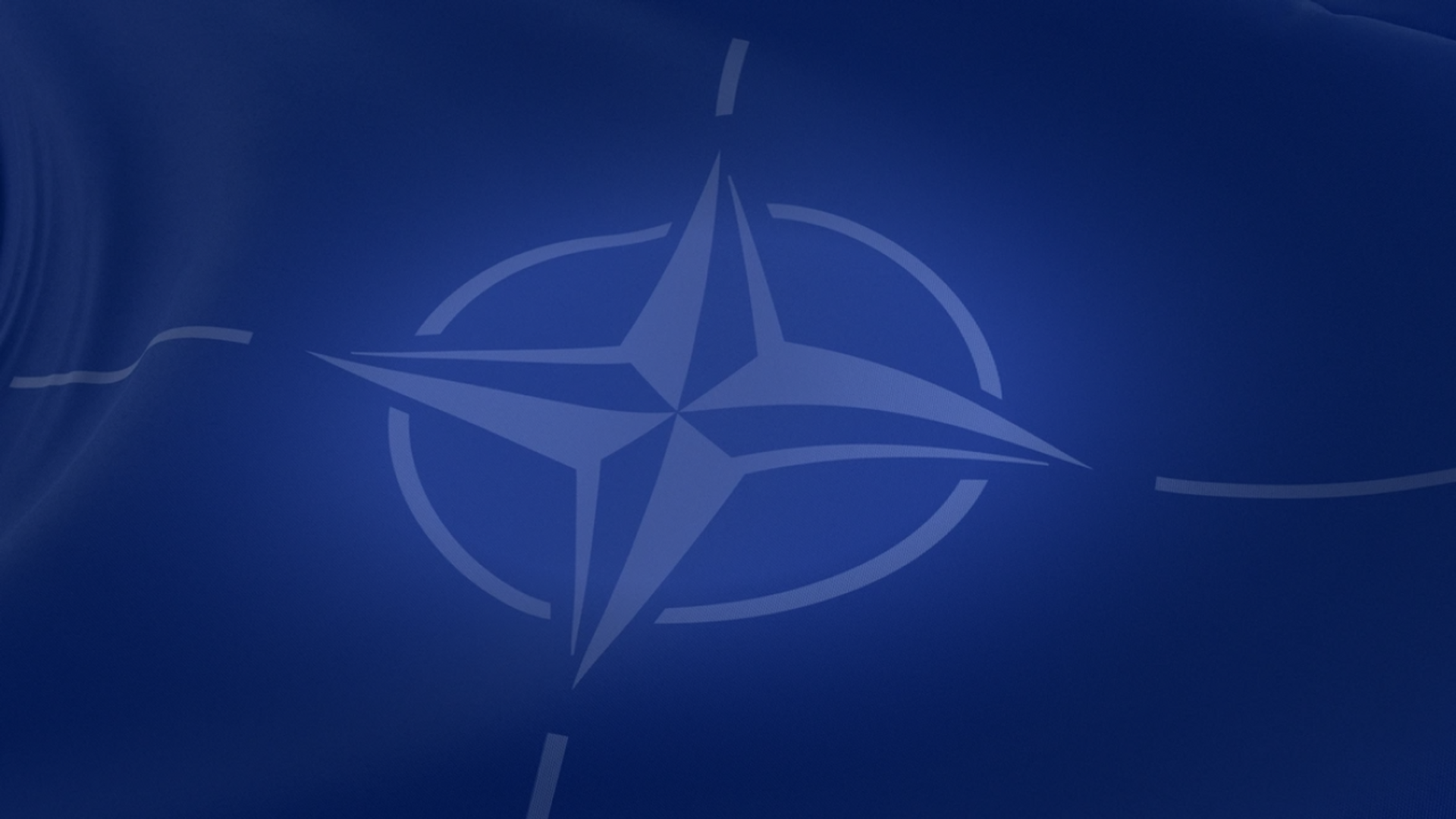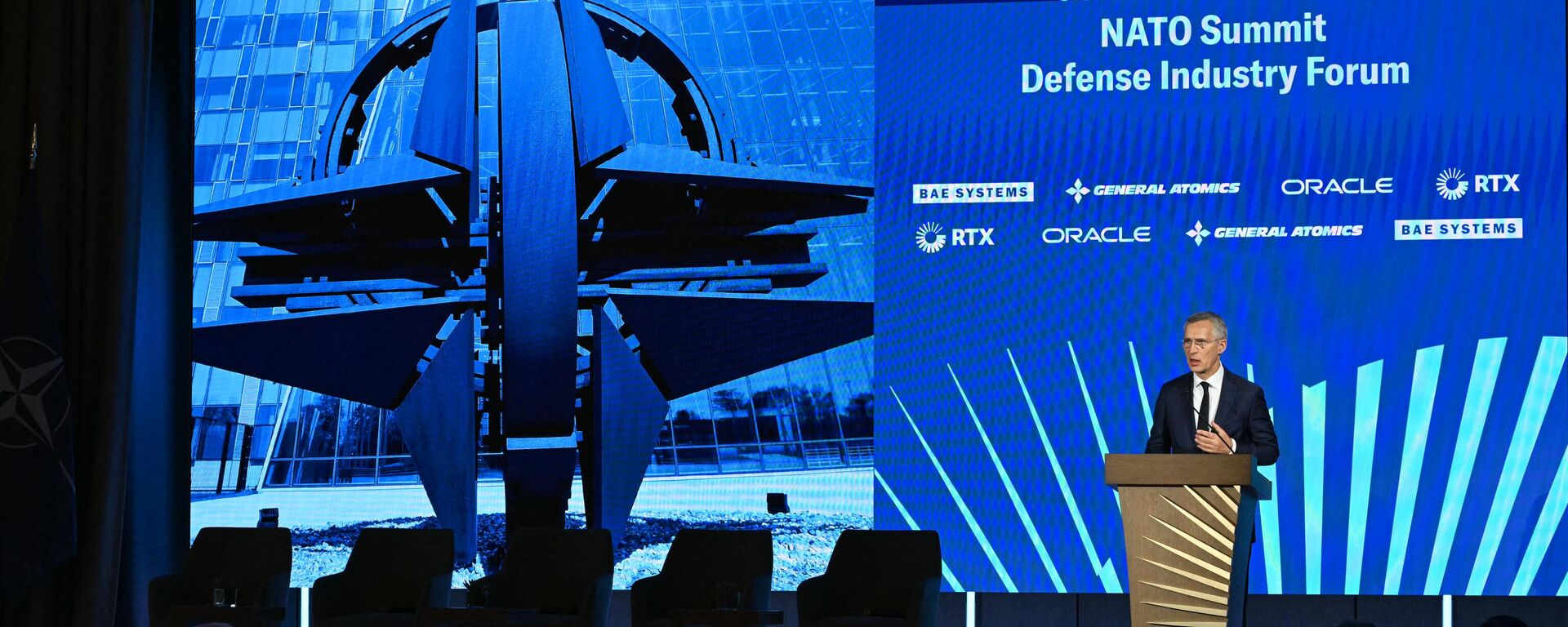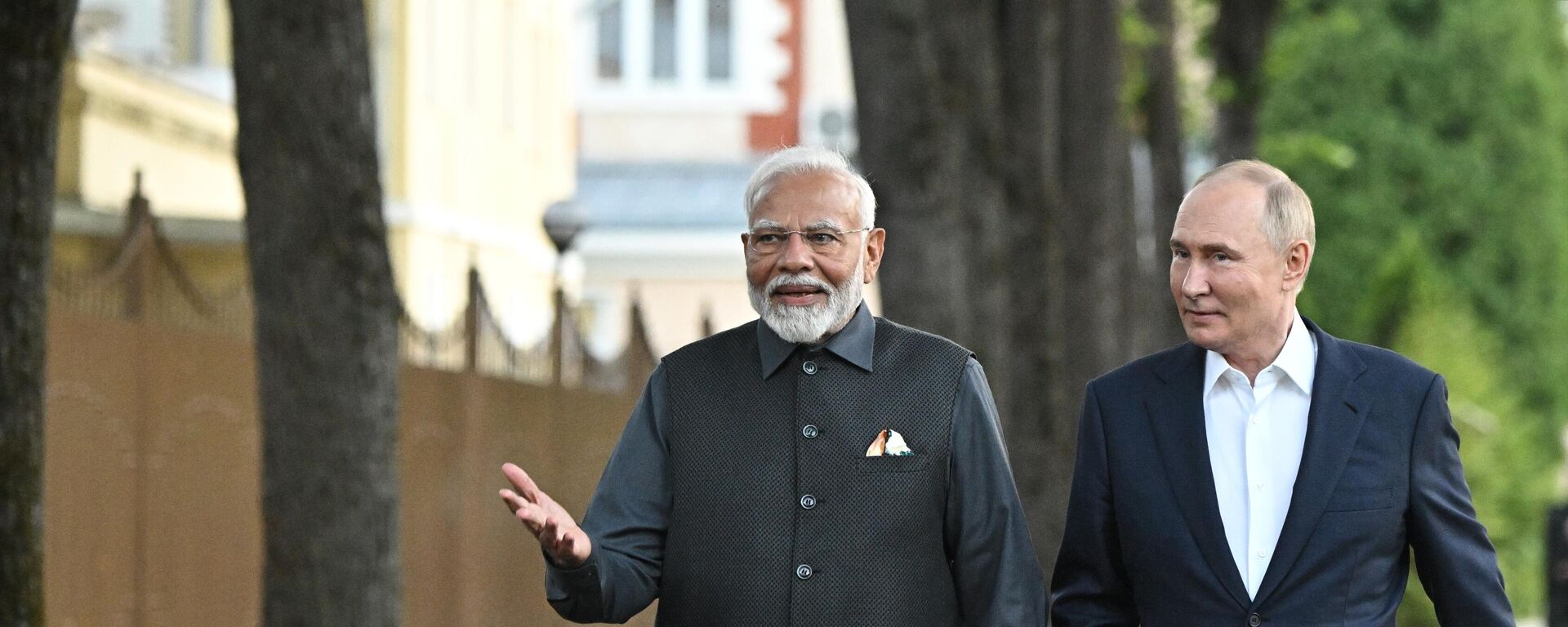NATO in State of Hysteria as Alliance Faces Russia, China, Trump Reelection - Experts

© Sputnik
Subscribe
WASHINGTON (Sputnik) - NATO leaders at the Washington summit this week were in an almost hysterical state as they contemplated not just the serious, sustained challenge of a rising Russia and China, but also the likelihood that Donald Trump will be reelected in November, European and US foreign policy and national security experts told Sputnik.
"NATO is almost hysterical as it confronts the failure of its backfiring attempts to 'contain' Russia, China, Iran and the DPRK [North Korea] and the imminent likely election of a NATO-sceptic Trump as US president," former United Kingdom ambassador to Syria and political commentator Peter Ford said on Thursday.
The 32-nation alliance unveiled its new declaration earlier in the day emphasizing its determination to confront Russia and China in defense of what it called international law and to the purposes and principles of the UN Charter. However, the declaration made no reference as to other nations' and alliances' rights to interpret those concepts differently from NATO.
Ford said the declaration did not appear to be rational and rather than presenting the alliance's principles and priorities in a way that could provide the basis for negotiated agreements with other nations, it indulged wildly in abuse.
"A psychiatrist reading the inordinately verbose, repetitive, breast beating, self-justifying NATO declaration would immediately diagnose a person having a nervous breakdown," Ford said.
The former UK diplomat also said NATO leaders were now so limited in their understanding of the world that they could not recognize other nations' aspirations while clinging to old intellectual constructs such as their alleged "rules-based order."
"That the declaration repeatedly uses NATO's favorite but post-Gaza utterly discredited term 'rules-based order' underlines that the organization is in pathological denial, unable to see itself as others see it," Ford said.
This denial extended to the refusal to acknowledge that while NATO may have gained more members, but in reality more liabilities than assets, two key states - Turkey and Hungary - were now increasingly members in name only, he said.
Ford said the declaration principally signals NATO's commitment to continue stoking the Ukraine conflict over a very long period, but this bluster may only last until the November US presidential election.
"We can but pray that Russia and China are sensible enough to see through the bluster and wait to see what happens," Ford added.
NATO'S AVALANCHE OF LIES
American University in Moscow President Edward Lozansky agreed that the declaration was irrational and worse, one that brings the world closer to the edge of the abyss.
"The avalanche of lies is astonishing; the biggest one is that NATO is only a defensive organization and is not involved in this war [in Ukraine] when, in reality, it is not only involved but has provoked it," Lozansky said.
NATO claimed to champion the forces of freedom and progress in the world, but its militaristic and aggressive policies against so many nations undermined its own rhetoric, he said.
Lozansky also said he was unsure why Hungary and Slovakia signed the declaration, which contradicted their previous statements, but speculated that perhaps they had to yield to the enormous pressure - something that has happened in the past to disobedient members.
NATO DECLARATION A TEXTBOOK OF IMPERIAL OVERREACH
US constitutional historian and political commentator Dan Lazare said the declaration read like an archaic document out of the distant past, so unconnected with reality that it resembled something King Louis XVI might have issued before the French Revolution.
"The declaration is a textbook example of imperial overreach," Lazare said, adding that while the alliance claims enemies are pressing in from all sides, NATO was extending its reach to ever-farther corners of the globe.
"According to the document, it is opening up a liaison office in Jordan, expanding operations in Kuwait and discussing strategy with the AUKUS [Australia-United Kingdom-United States] nations" while also proclaiming the Indo-Pacific region as directly affecting Euro-Atlantic security, Lazare said. "But why stop there? Why not extend operations into the Antarctic or the Strait of Magellan?"
Lazare said a few elements in the declaration were particularly over the top even by NATO standards, such as the proclamation the alliance members will never recognize Russia’s new territories, including Crimea.
"But doesn't NATO know that the Crimean population has shown repeatedly that it doesn't want anything to do with Ukraine and that the formula is therefore a recipe for endless war?" Lazare said.
While the declaration accuses Russia of sabotage, acts of violence and provocations at allied borders, among other malicious activities, it is widely known the United States and its NATO allies were responsible for the greatest single act of sabotage by destroying the Nordstream 2 pipelines, he said.
However, Lazare described the NATO Declaration's attack on China as especially ironic, Lazare said.
"What does NATO expect China to do - hold America's coat while it finishes off Moscow and then directs its aggression toward Beijing?" Lazare said.
If Washington truly wanted to put an end to the deepening Russia-China partnership, it should try lowering the temperature and adopting a more cooperative and reasonable approach, he said.
"Neither country is going away soon, so the United States better learn to live with it," Lazare added.
LAST DITCH EFFORT TO PROP UP CRUMBLING ALLIANCE
California State University Emeritus Professor of Political Affairs Beau Grosscup saw the declaration as a desperate last-ditch attempt to prop up the venerable and crumbling alliance before the US elections are held in November.
"I assess the meeting and declaration as an effort to shore up NATO before the 2024 US election, and the possibility of a Trump win," Grosscup said.
The declaration was also crafted to make a strong statement of support for Ukraine in its war against Russia, he said.
"Finally, the declaration is very clear that NATO is expanding its capabilities and commitments into the Pacific and Middle East/African theaters," Grosscup said.
The declaration was meant to try and show both NATO's friends and critics that the alliance was still a powerful force in the world to be reckoned with - a statement of unity and resolve that puts in doubt any notion of its demise among critics, he said.
However, the declaration will do nothing to change inexorable global realities and will not significantly change the dynamic of great power relations, Grosscup said.
For all the bluster and bluff, the declaration will seriously further increase already grave global tensions as China and Russia will see it as an aggressive act, Grosscup added.



